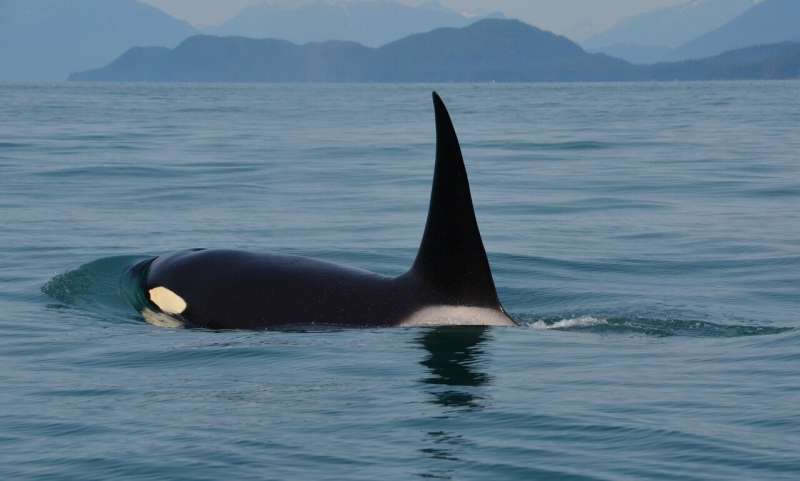Underwater noise from ships is making it tough for killer whales, or orcas, to find and catch their favorite fish, a recent study has found.
Orcas (Orcinus orca) rely heavily on sound to hunt. They emit ultrasonic echolocation clicks that bounce off objects. By listening for the echoes of these clicks, the orcas can identify objects that are around, including prey like salmon.
Since orcas “see” with sound, researchers wanted to understand how ship noise in the Salish Sea, off the west coast of the U.S. and Canada, affects their hunting.
So they tagged 25 orcas from two threatened populations: the northern resident killer whales and the southern resident ones. The tags, deployed between 2009 and 2014, tracked the orcas’ movements and recorded underwater sounds, including noise from ships that can get louder than a rock concert.
The study found that the louder the ship noise, the longer orcas spent searching for fish, and with less success. This is likely because vessel noise interferes with orcas’ abilities to receive the returning echoes of their echolocation clicks, causing them to miss important information, Jennifer Tennessen, the study’s lead author from the University of Washington, U.S., told Mongabay.
“The noise is analogous to foggy conditions where the whales are unable to see as far using echolocation,” Dimitri Ponirakis, a noise analyst at Cornell University, U.S., who wasn’t involved in the study, told Mongabay in an email. “This means that they must expend more energy to find the same amount of prey as they would under normal ambient conditions.”
Male and female orcas also responded differently to ship noise, the study found. Females, particularly those with calves, tended to forgo foraging in noisy waters, while males continued to search for fish despite lower success rates. This could be because males are larger in size, meaning they need to consume more energy than females daily, Tennessen said.
Continuing to chase fish in a noisy environment is a risky trade-off, she added. Vessel traffic has increased since the tags were deployed on the orcas.
“This past spring and summer, vessel traffic from tankers into and out of the Salish Sea more than tripled in number due to the expansion of the Trans Mountain pipeline sending oil from Alberta, Canada, to a terminal in Burnaby, British Columbia,” Tennessen said. “Additional port expansions are planned throughout the Salish Sea, which are expected to draw additional tanker and cargo ship traffic.”
Both the northern and southern resident orcas have struggled to recover since historic hunting and culling. Anything that interferes with how they find food can further hamper their recovery.
Ponirakis said that since both the orca populations in the Salish Sea are threatened, the U.S. and the Canadian authorities must work together to manage ship noise and minimize any risk to the orcas.
This article by Shreya Dasgupta was first published by Mongabay.com on 18 September 2024. Lead Image: An orca courtesy of Candice Emmons/NOAA Fisheries.
What you can do
Help to save wildlife by donating as little as $1 – It only takes a minute.







Leave a Reply